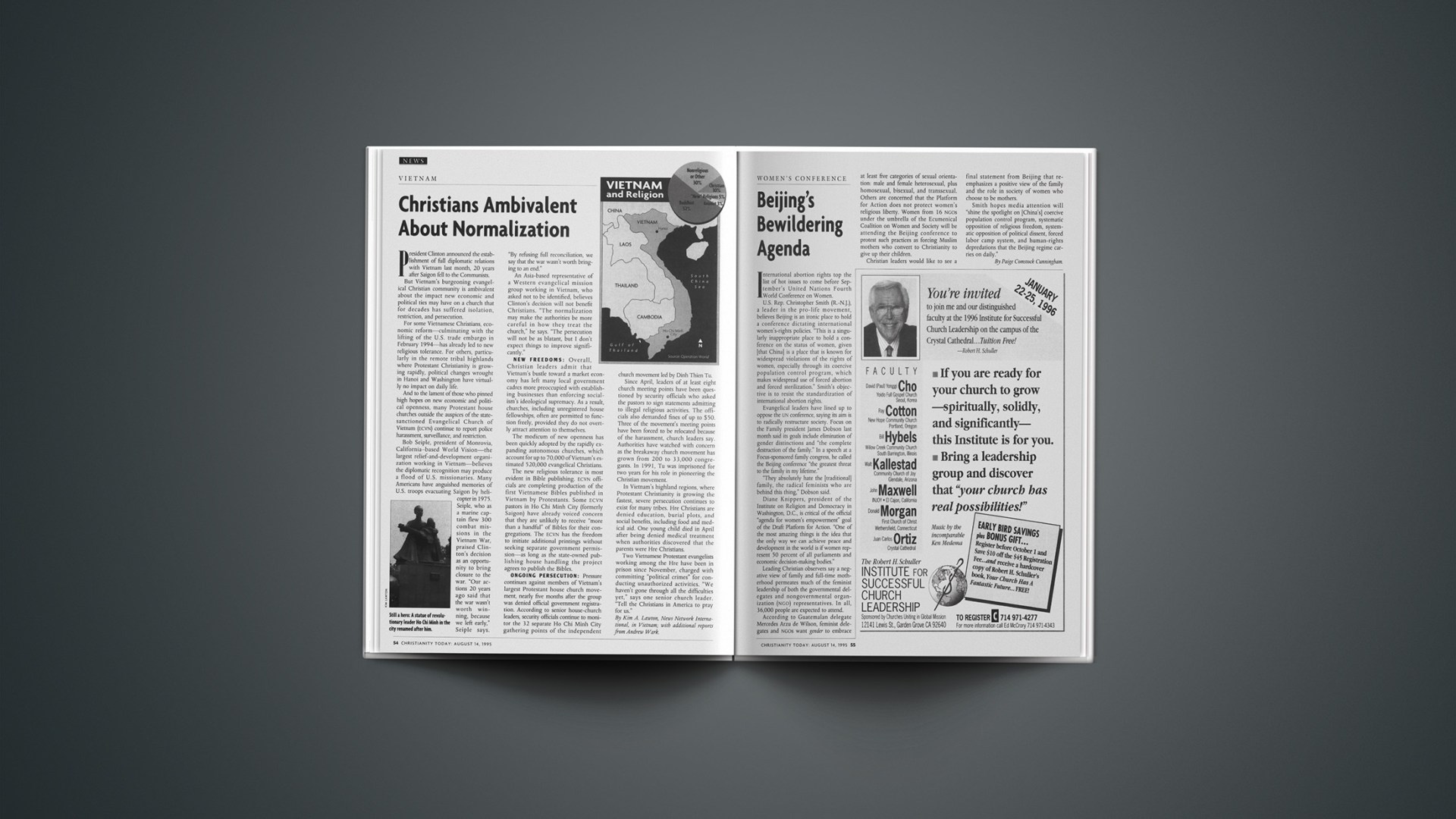International abortion rights top the list of hot issues to come before September’s United Nations Fourth World Conference on Women.
U.S. Rep. Christopher Smith (R.-N.J.), a leader in the pro-life movement, believes Beijing is an ironic place to hold a conference dictating international women’s-rights policies. “This is a singularly inappropriate place to hold a conference on the status of women, given [that China] is a place that is known for widespread violations of the rights of women, especially through its coercive population control program, which makes widespread use of forced abortion and forced sterilization.” Smith’s objective is to resist the standardization of international abortion rights.
Evangelical leaders have lined up to oppose the un conference, saying its aim is to radically restructure society. Focus on the Family president James Dobson last month said its goals include elimination of gender distinctions and “the complete destruction of the family.” In a speech at a Focus-sponsored family congress, he called the Beijing conference “the greatest threat to the family in my lifetime.”
“They absolutely hate the [traditional] family, the radical feminists who are behind this thing,” Dobson said.
Diane Knippers, president of the Institute on Religion and Democracy in Washington, D.C., is critical of the official “agenda for women’s empowerment” goal of the Draft Platform for Action. “One of the most amazing things is the idea that the only way we can achieve peace and development in the world is if women represent 50 percent of all parliaments and economic decision-making bodies.”
Leading Christian observers say a negative view of family and full-time motherhood permeates much of the feminist leadership of both the governmental delegates and nongovernmental organization (ngo) representatives. In all, 36,000 people are expected to attend.
According to Guatemalan delegate Mercedes Arzu de Wilson, feminist delegates and ngos want gender to embrace at least five categories of sexual orientation: male and female heterosexual, plus homosexual, bisexual, and transsexual. Others are concerned that the Platform for Action does not protect women’s religious liberty. Women from 16 ngos under the umbrella of the Ecumenical Coalition on Women and Society will be attending the Beijing conference to protest such practices as forcing Muslim mothers who convert to Christianity to give up their children.
Christian leaders would like to see a final statement from Beijing that re-emphasizes a positive view of the family and the role in society of women who choose to be mothers.
Smith hopes media attention will “shine the spotlight on [China’s] coercive population control program, systematic opposition of religious freedom, systematic opposition of political dissent, forced labor camp system, and human-rights depredations that the Beijing regime carries on daily.”
By Paige Comstock Cunningham.
Copyright © 1995 Christianity Today. Click for reprint information.
ctcurrtk5T90555814










